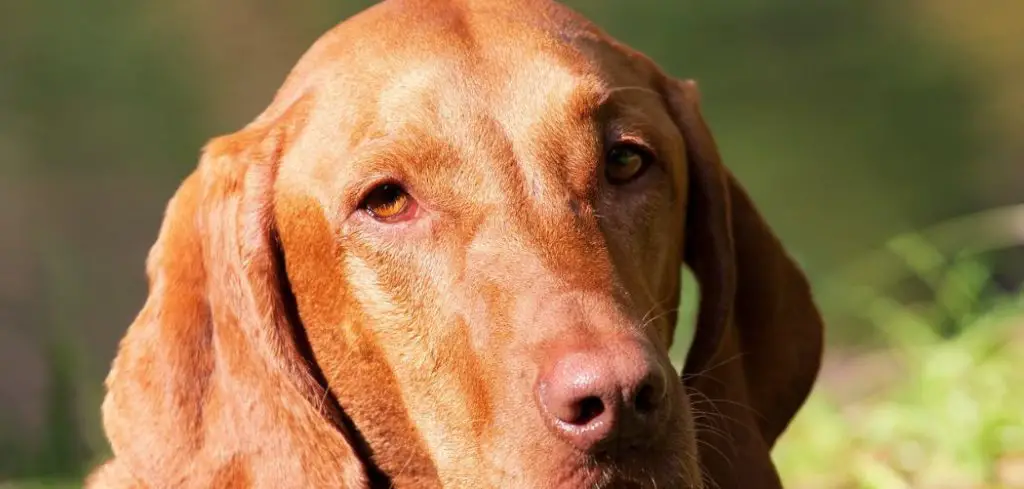Dogs sneezing along with mucus can be alarming. These symptoms may indicate anything from a mild irritation to an infection that requires veterinary attention.
Observing your dog’s behavior and the type of mucus can provide important clues about what’s going on.
We outline the common causes of mucus and sneezing in dogs, what you can do at home, and when to seek veterinary help.
Table of Contents
Dog Mucus and Sneezing: Why It Happens
Dog mucus and sneezing happen for several reasons, often related to the respiratory system or nasal passages. Common triggers include infections, allergies, irritants in the environment, or foreign objects lodged in the nose.
Some dogs may also develop these symptoms due to dental issues or underlying chronic illnesses.
While occasional sneezing is usually harmless, persistent or severe sneezing with mucus should be monitored closely, as it can indicate more serious health concerns.

Dog Mucus and Sneezing: Common Causes
Upper Respiratory Infections
Upper respiratory infections are a leading cause of sneezing and mucus in dogs.
Viruses or bacteria can infect the nasal passages and sinuses, causing inflammation and excess mucus production. Dogs with these infections often show other symptoms such as coughing, watery eyes, or lethargy.
Respiratory infections can spread quickly among dogs, especially in crowded or indoor environments, making early identification important.
If untreated, bacterial infections can worsen and lead to pneumonia or other complications.
Related: Dog coughing up white foamy mucus (What it means)
Allergies
Environmental allergens like pollen, dust, mold, or cleaning products can trigger sneezing and mucus production in dogs. Allergic reactions irritate the nasal passages and increase mucus secretion.
Dogs with allergies may also have itchy eyes, excessive licking, or ear infections.
Chronic exposure to allergens can cause persistent nasal discharge and discomfort, so identifying and minimizing triggers is critical for your dog’s well-being.
Foreign Objects in the Nose
Dogs are naturally curious, and small objects like grass seeds, dirt, or tiny toys can get lodged in their nasal passages. This often leads to sudden sneezing, pawing at the nose, and a noticeable increase in mucus.
If a foreign object remains in the nose, it can cause irritation, infection, and even bleeding. Prompt veterinary removal is essential, as prolonged obstruction can lead to more serious respiratory issues.
Dental Problems
Dental disease can sometimes manifest as sneezing and nasal mucus, particularly when upper teeth or gums are affected.
Infections in the mouth may spread to the sinuses, causing inflammation and discharge.
Signs of dental problems include bad breath, swollen gums, or difficulty eating. Untreated dental infections can become severe, potentially affecting a dog’s overall health and triggering chronic sneezing.
Read more: Dog Sneezing and Coughing (Understanding the Connection)
Nasal Tumors
Though less common, nasal tumors in dogs can lead to persistent sneezing and mucus discharge, sometimes streaked with blood.
Tumors can obstruct nasal passages, making breathing uncomfortable and causing chronic nasal irritation.
Early detection is key, as nasal tumors can be aggressive. Dogs may also show other signs such as facial swelling, nasal deformities, or a decrease in appetite.
Veterinary evaluation is essential to determine the cause and appropriate treatment.
Environmental Irritants
Smoke, strong perfumes, household cleaners, or dust can irritate a dog’s sensitive nasal passages. This irritation often results in sudden sneezing bouts accompanied by watery or thick mucus.
While exposure to irritants usually resolves once the dog is removed from the environment, repeated or prolonged exposure can cause chronic nasal inflammation and discomfort.
Monitoring your dog’s environment and keeping it clean can help reduce these triggers.
What to Do If Your Dog Has Mucus When Sneezing
If your dog experiences occasional sneezing with mild mucus, there are several at-home steps you can take to help them feel more comfortable.
Ensure your dog has access to fresh air and clean water, and gently wipe away any nasal discharge to keep the nose clean.
Using a humidifier in dry environments can soothe irritated nasal passages. Monitor your dog for changes in behavior, appetite, or energy, as these may indicate a more serious condition.
Avoid exposure to potential allergens or irritants and keep your dog’s environment free from dust, smoke, or strong fragrances.
Regular checkups with your veterinarian can also help maintain your dog’s respiratory health and catch potential issues early.
When to Call or Visit Your Vet
Persistent sneezing, thick yellow or green mucus, coughing, or difficulty breathing requires prompt veterinary attention. Any presence of blood in the mucus or sneezing accompanied by lethargy, loss of appetite, or fever is considered an urgent symptom.
Sudden onset of sneezing or repeated sneezing episodes that do not improve within a few days should also be evaluated.
Dogs showing signs of nasal obstruction, pawing at the nose excessively, or unusual facial swelling may have a foreign object or tumor that requires immediate assessment.
Your veterinarian can perform diagnostic tests, including nasal swabs, X-rays, or blood work, to determine the underlying cause and recommend appropriate treatment.
Read more: Dog Mucus in Nose (How to Identify Causes and Treat)
Key Takeaway
Mucus and sneezing in dogs can range from a minor irritation to a sign of a serious health issue. Observing your dog’s symptoms closely and maintaining a clean, allergen-free environment can help manage mild cases.
However, persistent sneezing, colored mucus, or any signs of distress should never be ignored. Prompt veterinary evaluation ensures your dog receives the right care, preventing complications and keeping them healthy and comfortable.
With attentive care, most dogs recover quickly from minor irritations, and more serious conditions can be effectively managed with early intervention.
